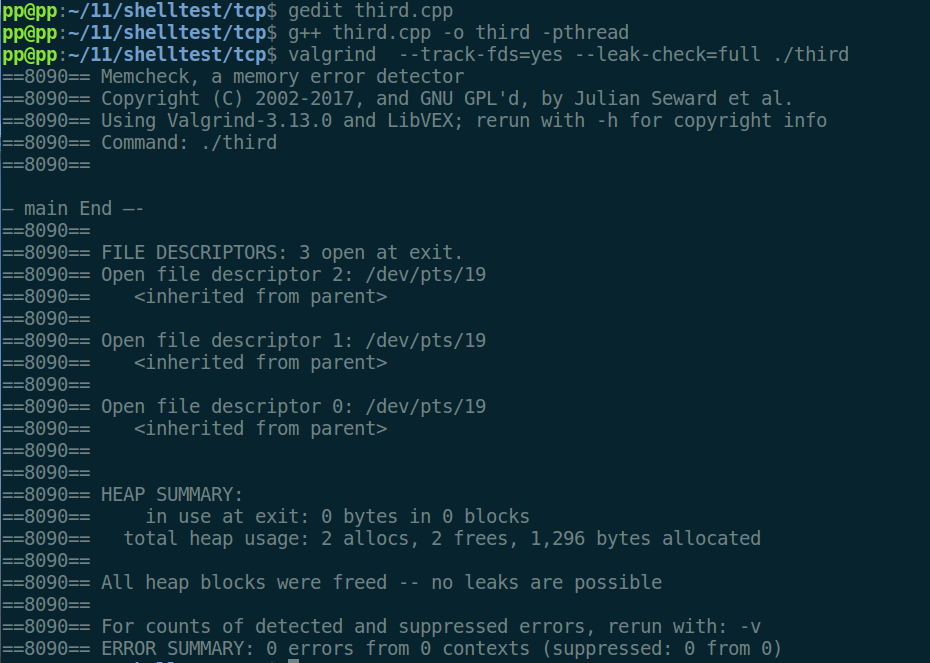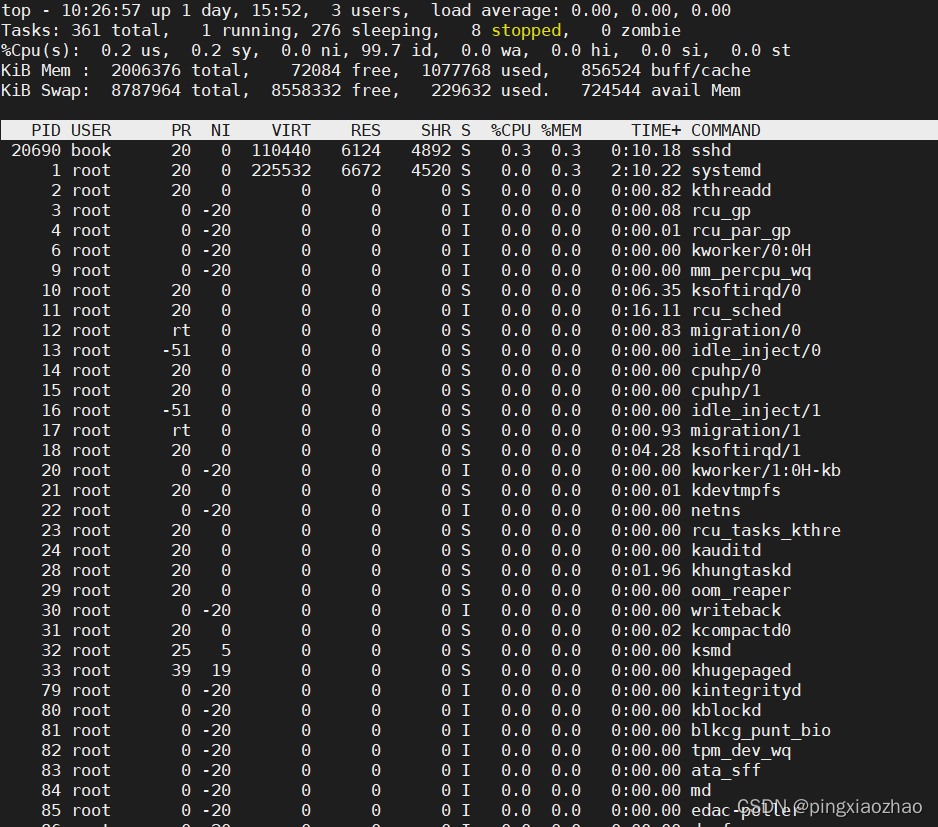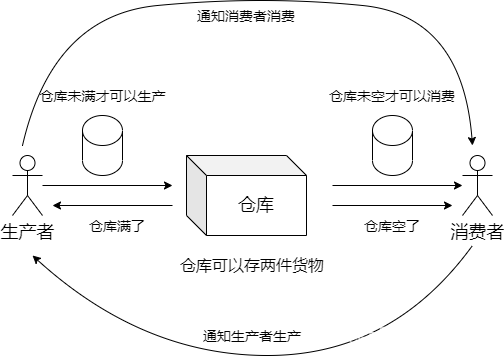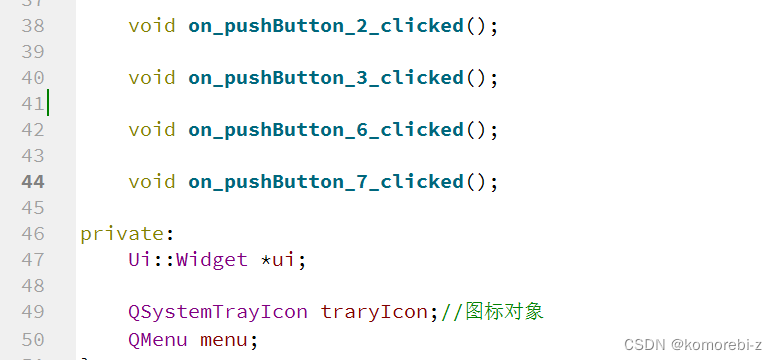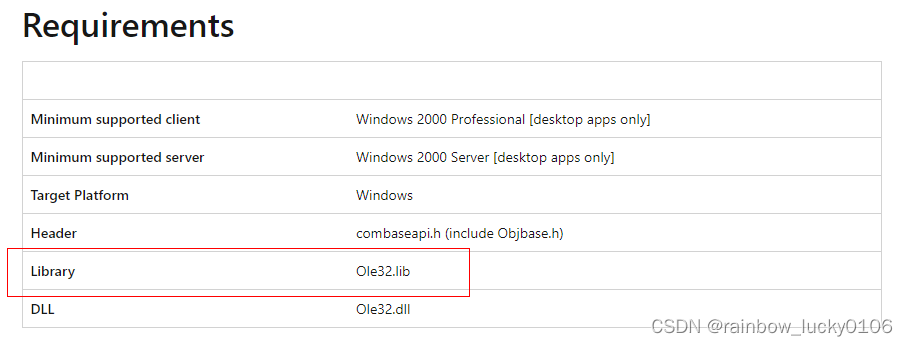1 函数原型
#include <pthread.h>int pthread_cond_timedwait(pthread_cond_t *restrict cond,pthread_mutex_t *restrict mutex,const struct timespec *restrict abstime);
int pthread_cond_wait(pthread_cond_t *restrict cond,pthread_mutex_t *restrict mutex);2 注意事项
pthread_cond_timedwait()用于等待一个条件变量,等待条件变量的同时可以设置等待超时。这是一个非常有用的功能,如果不想一直等待某一条件变量,就可以使用这个函数。
2.1 abstime参数
这里面的超时时间是一个绝对值,也就是距离1970-1-1 日的时间值,而不是一个时间段。比如说当前时间为2021-5-15 17:14:00.100,我们想通过这个函数设置最大超时为2500ms,那么就需要设置abstime时间为2021-5-15 17:14:02.600.
2.2 时间获取
条件变量默认使用的时间是CLOCK_REALTIME。通过clock_gettime()接口获取时间。
static long long tm_to_ns(struct timespec tm)
{return tm.tv_sec * 1000000000 + tm.tv_nsec;
}static struct timespec ns_to_tm(long long ns)
{struct timespec tm;tm.tv_sec = ns / 1000000000;tm.tv_nsec = ns - (tm.tv_sec * 1000000000);return tm;
}{ 示意代码:struct timespec start_tm;struct timespec end_tm;int timeout_ms = 2500;clock_gettime(CLOCK_REALTIME, &start_tm);end_tm = ns_to_tm(tm_to_ns(start_tm) + timeout_ms*1000000);pthread_mutex_lock(&mtx);while (等待的条件) {if (pthread_cond_timedwait(&cond, &mtx, &end_tm) == ETIMEDOUT) {/** 如果超时则退出等待*/ret = -1;break;}}}但是CLOCK_REALTIME时间容易产生变化,比如通过NTP校准系统时钟,那么系统时钟会产生跨度变化。所以一般我们需要使用CLOCK_MONOTONIC。
但是条件变量默认使用的时钟是CLOCK_REALTIME,所以需要通过条件变量的属性来设置条件变量使用的时钟。
pthread_condattr_t attr;pthread_condattr_init(&attr);#if 0clockid_t clock_id;pthread_condattr_getclock(&attr, &clock_id);printf("clock_id: %d\n", clock_id);
#endif/** pthread_cond_timedwait()默认使用的是CLOCK_REALTIME,* CLOCK_REALTIME容易受系统影响,比如校时操作* 所以条件变量使用的时钟改为CLOCK_MONOTONIC* 参考:https://man7.org/linux/man-pages/man3/pthread_cond_timedwait.3p.html*/pthread_condattr_setclock(&attr, CLOCK_MONOTONIC);pthread_cond_init(&cond, &attr);pthread_condattr_destroy(&attr);static long long tm_to_ns(struct timespec tm)
{return tm.tv_sec * 1000000000 + tm.tv_nsec;
}static struct timespec ns_to_tm(long long ns)
{struct timespec tm;tm.tv_sec = ns / 1000000000;tm.tv_nsec = ns - (tm.tv_sec * 1000000000);return tm;
}{ 示意代码:struct timespec start_tm;struct timespec end_tm;int timeout_ms = 2500;clock_gettime(CLOCK_MONOTONIC, &start_tm);end_tm = ns_to_tm(tm_to_ns(start_tm) + timeout_ms*1000000);pthread_mutex_lock(&mtx);while (等待的条件) {if (pthread_cond_timedwait(&cond, &mtx, &end_tm) == ETIMEDOUT) {/** 如果超时则退出等待*/ret = -1;break;}}}如果想看完整的使用历程可以参考:
Linux应用编程实现简单队列功能_霍宏鹏的博客-CSDN博客
3 描述
pthread_cond_timedwait(3p) - Linux manual page
The pthread_cond_timedwait() and pthread_cond_wait() functions
shall block on a condition variable. The application shall ensure
that these functions are called with mutex locked by the calling
thread; otherwise, an error (for PTHREAD_MUTEX_ERRORCHECK and
robust mutexes) or undefined behavior (for other mutexes)
results.These functions atomically release mutex and cause the calling
thread to block on the condition variable cond; atomically here
means ``atomically with respect to access by another thread to
the mutex and then the condition variable''. That is, if another
thread is able to acquire the mutex after the about-to-block
thread has released it, then a subsequent call to
pthread_cond_broadcast() or pthread_cond_signal() in that thread
shall behave as if it were issued after the about-to-block thread
has blocked.Upon successful return, the mutex shall have been locked and
shall be owned by the calling thread. If mutex is a robust mutex
where an owner terminated while holding the lock and the state is
recoverable, the mutex shall be acquired even though the function
returns an error code.When using condition variables there is always a Boolean
predicate involving shared variables associated with each
condition wait that is true if the thread should proceed.
Spurious wakeups from the pthread_cond_timedwait() or
pthread_cond_wait() functions may occur. Since the return from
pthread_cond_timedwait() or pthread_cond_wait() does not imply
anything about the value of this predicate, the predicate should
be re-evaluated upon such return.When a thread waits on a condition variable, having specified a
particular mutex to either the pthread_cond_timedwait() or the
pthread_cond_wait() operation, a dynamic binding is formed
between that mutex and condition variable that remains in effect
as long as at least one thread is blocked on the condition
variable. During this time, the effect of an attempt by any
thread to wait on that condition variable using a different mutex
is undefined. Once all waiting threads have been unblocked (as by
the pthread_cond_broadcast() operation), the next wait operation
on that condition variable shall form a new dynamic binding with
the mutex specified by that wait operation. Even though the
dynamic binding between condition variable and mutex may be
removed or replaced between the time a thread is unblocked from a
wait on the condition variable and the time that it returns to
the caller or begins cancellation cleanup, the unblocked thread
shall always re-acquire the mutex specified in the condition wait
operation call from which it is returning.A condition wait (whether timed or not) is a cancellation point.
When the cancelability type of a thread is set to
PTHREAD_CANCEL_DEFERRED, a side-effect of acting upon a
cancellation request while in a condition wait is that the mutex
is (in effect) re-acquired before calling the first cancellation
cleanup handler. The effect is as if the thread were unblocked,
allowed to execute up to the point of returning from the call to
pthread_cond_timedwait() or pthread_cond_wait(), but at that
point notices the cancellation request and instead of returning
to the caller of pthread_cond_timedwait() or pthread_cond_wait(),
starts the thread cancellation activities, which includes calling
cancellation cleanup handlers.A thread that has been unblocked because it has been canceled
while blocked in a call to pthread_cond_timedwait() or
pthread_cond_wait() shall not consume any condition signal that
may be directed concurrently at the condition variable if there
are other threads blocked on the condition variable.The pthread_cond_timedwait() function shall be equivalent to
pthread_cond_wait(), except that an error is returned if the
absolute time specified by abstime passes (that is, system time
equals or exceeds abstime) before the condition cond is signaled
or broadcasted, or if the absolute time specified by abstime has
already been passed at the time of the call. When such timeouts
occur, pthread_cond_timedwait() shall nonetheless release and re-
acquire the mutex referenced by mutex, and may consume a
condition signal directed concurrently at the condition variable.The condition variable shall have a clock attribute which
specifies the clock that shall be used to measure the time
specified by the abstime argument. The pthread_cond_timedwait()
function is also a cancellation point.If a signal is delivered to a thread waiting for a condition
variable, upon return from the signal handler the thread resumes
waiting for the condition variable as if it was not interrupted,
or it shall return zero due to spurious wakeup.The behavior is undefined if the value specified by the cond or
mutex argument to these functions does not refer to an
initialized condition variable or an initialized mutex object,
respectively.

